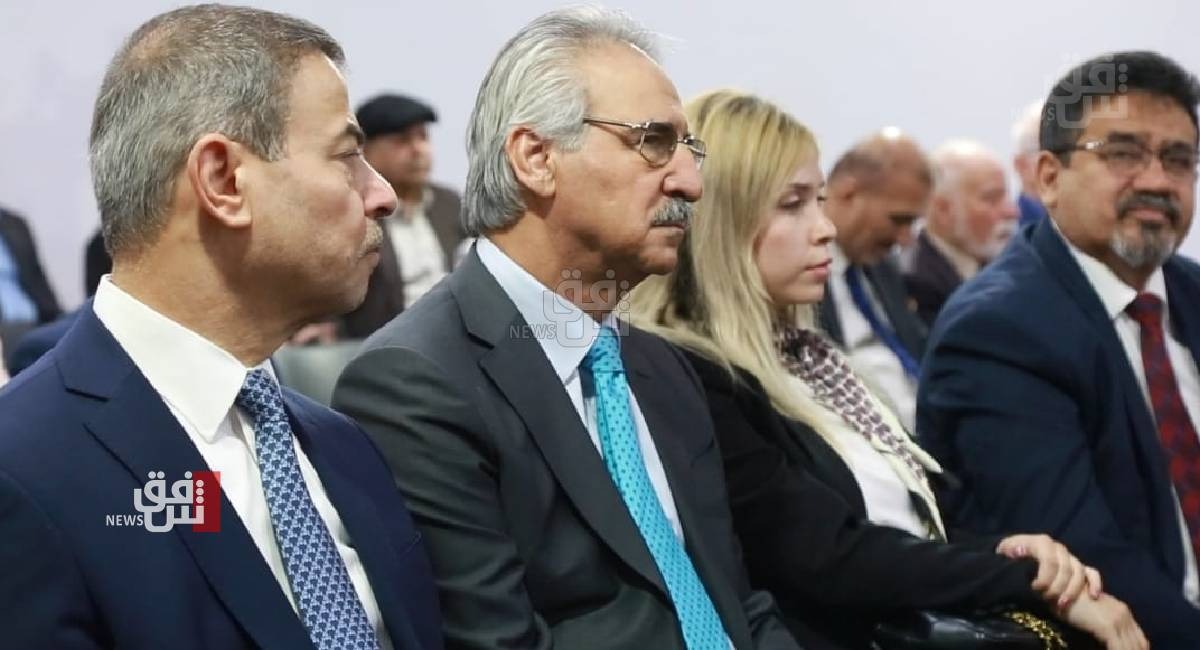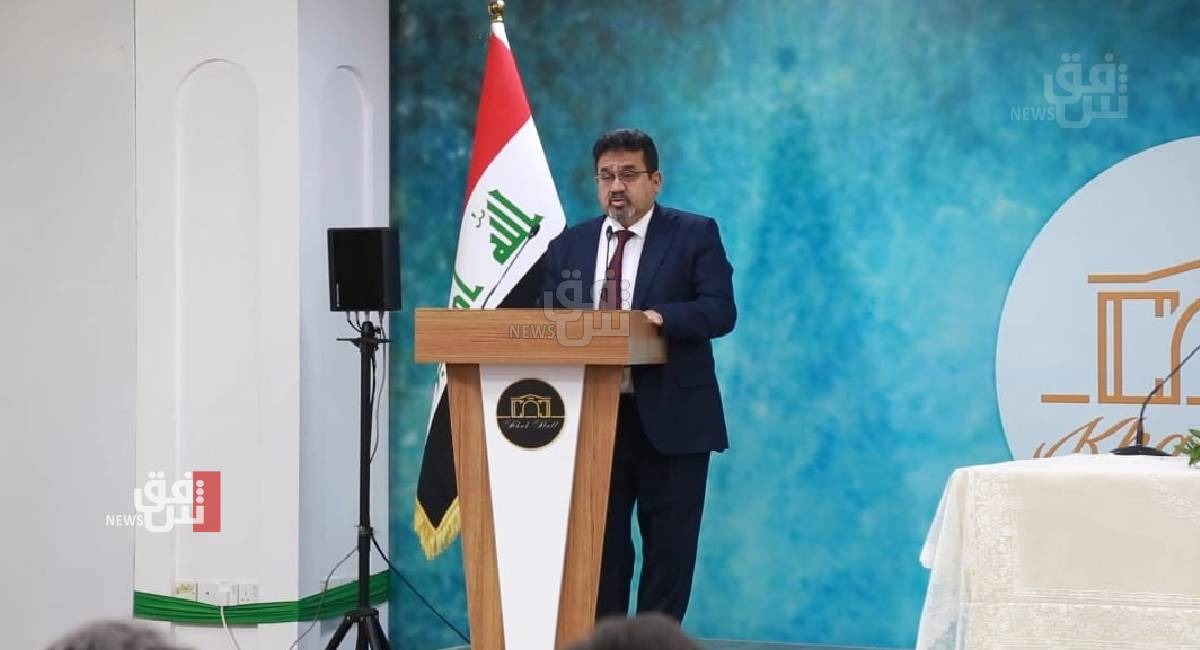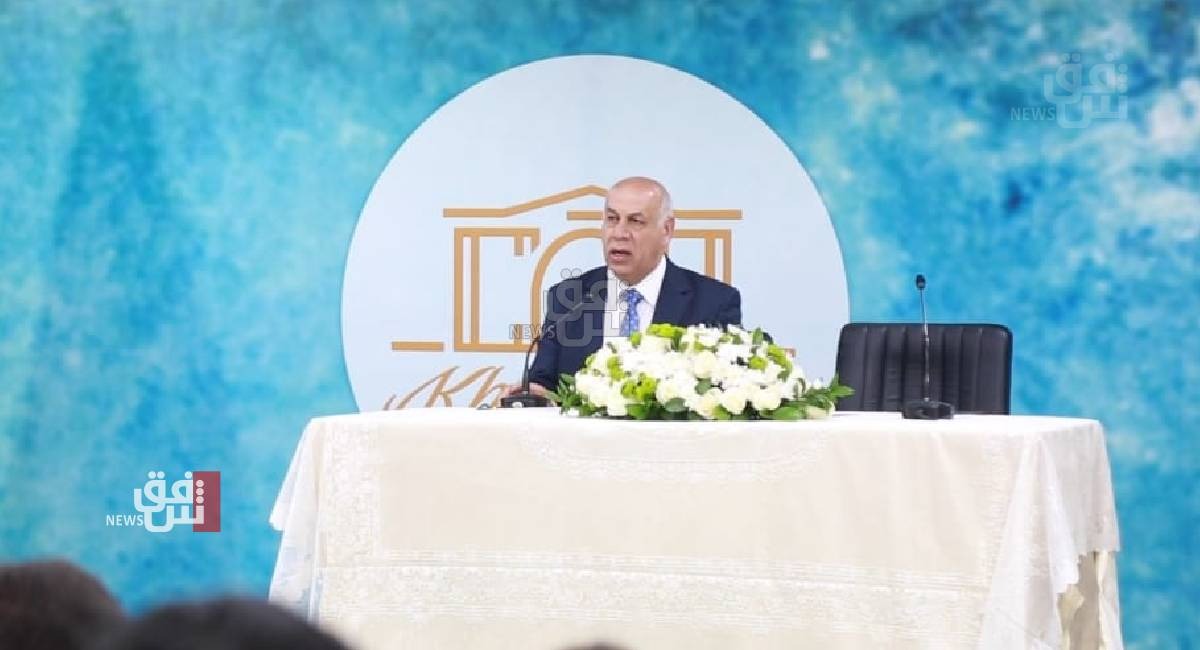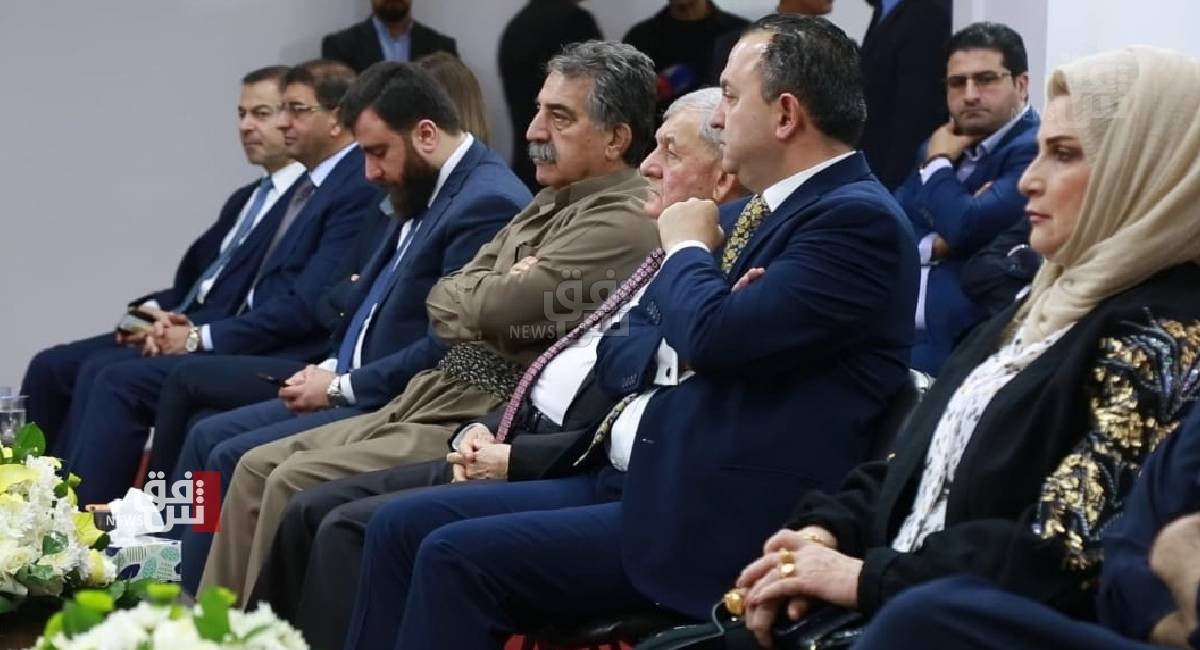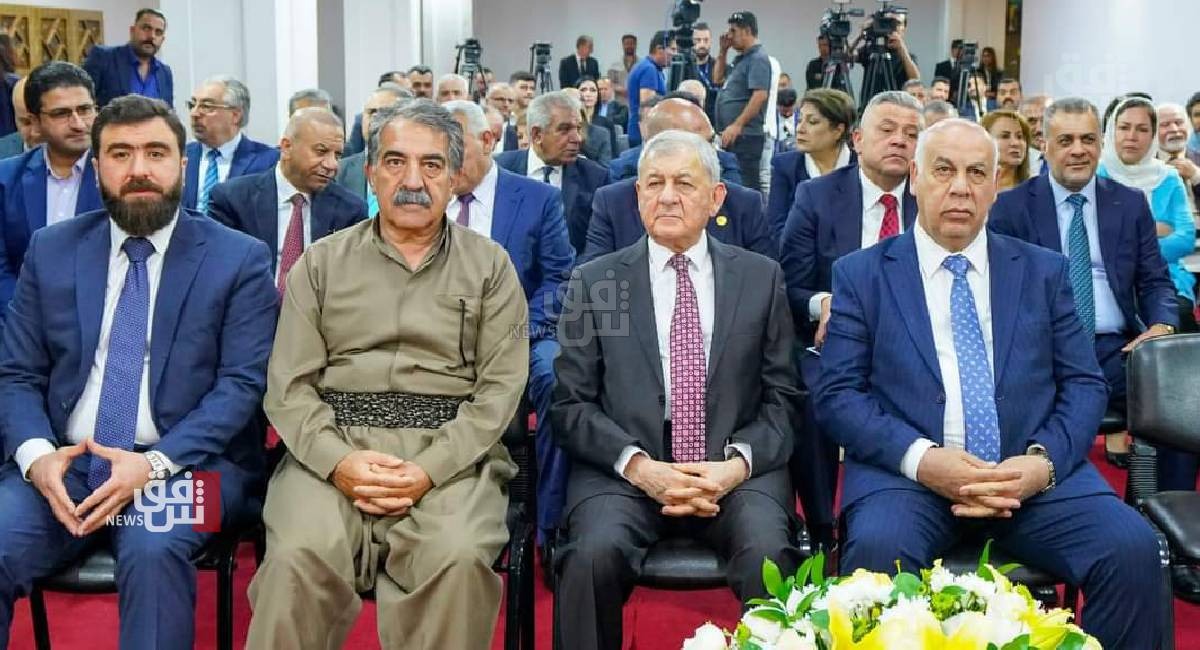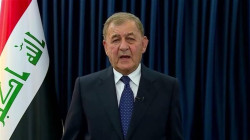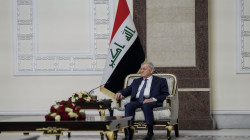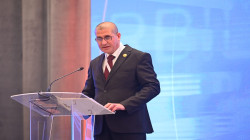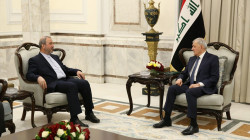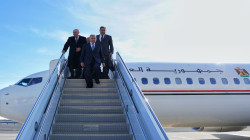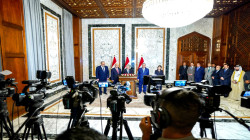Rashid stresses need to strengthen bonds between Kurds, Arabs
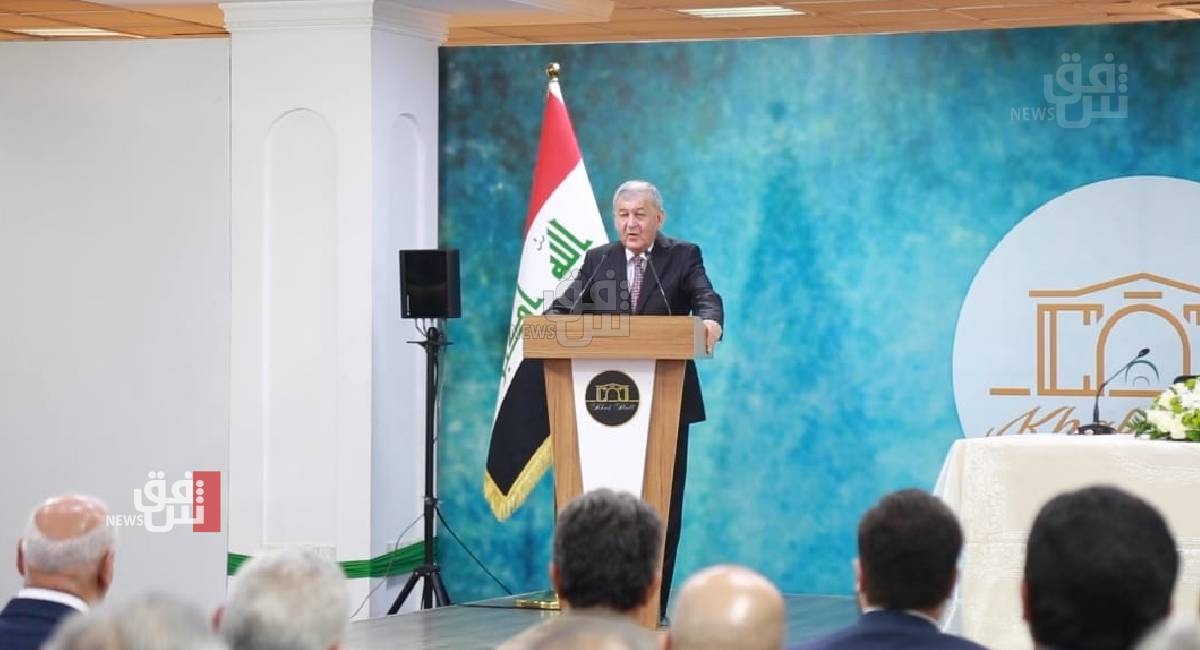
Shafaq News / President Abdul Latif Jamal Rashid affirmed the existence of numerous commonalities between Kurds, Arabs, and other Iraqi communities that should be enhanced to foster a spirit of brotherhood. He held the previous regime responsible for pursuing policies that severed ties among the people of the country.
According to our correspondent, the President inaugurated the Kurdish-Arab Cultural Center in Sulaymaniyah, with the presence of official and cultural figures, aiming to strengthen cultural relations between the center and the Kurdistan Region.
Alongside the President, the Minister of Culture, Tourism, and Antiquities, Ahmed Fakak Al-Badran, the Minister of Migration and Displaced Persons, Ivan Faek Yaquob, representatives of the Kurdistan Democratic Party (KDP), senior figures, officials, and a gathering of academics and writers attended the opening ceremony.
During the inauguration, the President stated, "Through the Kurdish-Arab Cultural Center, we aspire to solidify and develop relations and common life between Kurdish and Arab intellectuals, as well as their counterparts from other ethnic groups.
Conversely, we aim to strengthen the bonds between Arab intellectuals and their Kurdish and other fellow intellectuals in the Democratic Federal Iraq. The center is an independent civil institution."
He stressed that "what unites us is a multitude of cultural, national, and social commonalities. It is our responsibility to develop and enhance this diversity through collective efforts. Through this center, we will work to achieve a portion of these aspirations."
He considered that "the work in the center will be conducted by intellectuals, including writers, artists, researchers, and thinkers, without any intervention from any authority other than the authority of common national culture."
He added, "Unfortunately, the policies, especially during the decades of dictatorship, have created a sort of rupture among the people of this country. Generations have emerged unfamiliar with the well-known coexistence between citizens of different ethnicities."
The President emphasized that "opportunities for coexistence and language learning have become not only possible but necessary. We aspire to have every Kurd speak Arabic, just as we hope that any Arab citizen or citizen from other ethnicities speaks and understands Kurdish."
The Minister of Culture, Tourism, and Antiquities, Ahmed Fakak Al-Badran, in his speech, expressed the ministry's commitment to supporting projects that promote the unity of Arab, Kurdish, and other ethnic cultures. He stressed the importance of developing cooperation and joint work among writers from different communities.
Additionally, the Minister of Culture in the Kurdistan Region, Mohammed Hama Saeed, highlighted that Kurdish and Arab culture is a single enlightenment project that aims to reproduce societies capable of grasping cultural and societal consciousness and venturing into new horizons.
Secretary of the Supreme Council of the Patriotic Union of Kurdistan, Farid Asasard, discussed the Kurds' use of the Arabic script and how they have adapted to address the existing linguistic challenges, facilitating the use of language in society and culture.
The President of the Iraqi Writers Union, Ali Al-Fawwaz, emphasized the importance of providing a supportive political and cultural environment for such projects.
Furthermore, Judge Laith Jabr Hamza, the head of the Judicial Supervision Authority, conveyed greetings and best wishes from the Chief Justice of the Supreme Judicial Council, Judge Faiq Zidan, and expressed his hopes for the success of the center, considering culture as a message of peace.
Dr. Ibrahim Khalil Al-Ali provided a historical overview of the Arab-Kurdish brotherhood.
